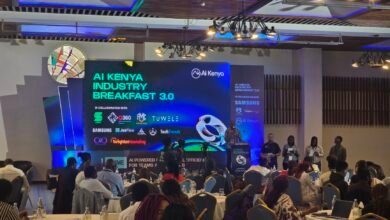
Kenya’s tech outsourcing sector is booming, but the rise of artificial intelligence (AI) may reshape the future of millions of jobs across the continent. A new report by Caribou and Genesis Analytics, in partnership with the Mastercard Foundation, has revealed that up to 40% of tasks in Africa’s growing Business Process Outsourcing (BPO) and IT-Enabled Services (ITES) sectors could be automated by 2030.
Kenya’s BPO Market Sees Steady Growth Amid Rising AI Concerns
According to projections, Kenya’s BPO market will hit revenues of US $272.1 million in 2025, growing at an annual rate of 5.96%. By 2029, this figure is expected to rise to US $343 million. The Kenyan government has also announced an ambitious plan to create 1 million jobs in the BPO/ITES space over the next five years, supported by incentives and policy reforms.
However, this growth could be undermined by automation trends. The report identifies that Customer Experience roles—representing 44% of current BPO employment—are particularly at risk, with half of the tasks in these roles potentially automatable.
Entry-Level Workers, Women and Youth Face Greatest Risk
The study warns that entry-level jobs, which account for 68% of Africa’s tech outsourcing workforce, are especially vulnerable. More than 50% of tasks in these roles could be replaced by AI. The impact is more pronounced for women and youth, who make up the majority of workers in these positions.
On average, tasks performed by women in the BPO and ITES sectors are 10% more susceptible to automation compared to those done by men. Without deliberate intervention, this could deepen existing gender-based inequalities.
Finance and Accounting positions are also under pressure, with nearly two-thirds of junior-level tasks at risk of automation. These shifts threaten to disproportionately affect livelihoods unless urgent steps are taken to build resilience in the workforce.
AI Tools Already in Use Across the Continent
Despite the risks, AI is already transforming the BPO sector in Africa. Workers across the continent are increasingly leveraging tools such as ChatGPT, Microsoft Copilot, and custom in-house bots to boost productivity, accuracy, and creativity. These tools are assisting in coding, debugging, content creation, and customer service, allowing employees to focus on more strategic and higher-value tasks.
The report suggests that automation, if handled well, could be a gateway to better jobs. Only 10% of tasks in the sector are considered fully resilient to automation, meaning there is significant scope to upskill the workforce and open pathways to higher-paying roles in cybersecurity, AI operations, and data services.
Strategic Upskilling Is the Key
Rodwell Mangisi, Director of Digital Economy Pan African Programs at the Mastercard Foundation, stated:
“Africa’s tech outsourcing industry is expanding rapidly, adding new jobs and opportunities each year. As AI transforms global business processes, Africa can lead by ensuring its workforce is AI-ready. By investing in targeted upskilling programs, especially for women and young professionals, we can ensure this 6% annual growth translates into sustainable, high-value employment that benefits all demographics.”
Charlene Migwe, Program Director at Caribou, emphasized the importance of turning automation risks into strategic opportunities:
“Africa’s tech outsourcing sector is at a pivotal moment. With the right investments in skills development, ethical AI, and inclusive policies, we can transform the risks of automation into new opportunities for innovation and resilience.”
AI-Ready Workforce Could Unlock a $35 Billion Opportunity
Africa’s BPO sector could reach a value of US $35 billion by 2028, but this potential hinges on proactive investment in AI training and inclusion. The report urges stakeholders to prioritize equitable AI strategies to ensure all segments of the population—especially women and youth—can transition into future-proof roles.
Failure to act could stall economic progress and undermine the digital transformation momentum currently sweeping across Africa.






